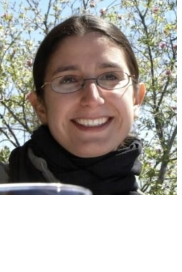Sharing to Survive: The Role of Social Networks during the Yemen Crisis
Watch Recording (English) Watch Recording (Arabic)
View Presentation (English) View Presentation (Arabic)
Discussion notes can be viewed here (English).
Join REAL for a discussion exploring the findings from a recent report on the role of social connections and social networks during Yemen’s humanitarian crisis.
It is estimated that over 20 million Yemenis—66% of the population—are in need of assistance. Nonetheless, the humanitarian response in Yemen remains severely underfunded. So how are Yemenis coping? Experts on food security, research from other contexts, and Yemenis themselves have pointed to an obvious but under-recognized answer: social connections and social networks. These informal support networks have been critical in households’ ability to mobilize tangible and intangible resources to both meet immediate needs and survive in the face of multiple shocks and stresses.
After more than seven years of conflict, informal support networks are showing signs of exhaustion, with more households becoming dependent upon formal assistance. There is significant evidence that the extraordinary social solidarity of Yemeni households has been key in preventing a further deterioration of humanitarian conditions. However, aid actors have failed to fully account for the role of social networks in their response. Evidence from Taiz highlights the important role that aid actors can play in accounting for and bolstering informal support networks, both in Yemen and other protracted crises.
The event was held in English and Arabic with simultaneous interpretation.
***
انضم إلى REAL لمناقشة النتائج من تقرير حديث عن دور الروابط والشبكات الاجتماعية خلال الأزمة الإنسانية في اليمن.
تشير التقديرات إلى أن أكثر من 20 مليون يمني - 66٪ من السكان - بحاجة إلى المساعدة. ومع ذلك ، لا تزال الاستجابة الإنسانية في اليمن تعاني من نقص حاد في التمويل. فكيف يتأقلم اليمنيون مع الأزمة؟ أشار خبراء الأمن الغذائي ، والبحوث من سياقات أخرى ، واليمنيون أنفسهم إلى سبب واضح وهو الروابط والشبكات الاجتماعية، ولعله سبب لا يحظى بمكانة عالية عند تحديد كيفية تأقلم اليمنيين مع الصراع. كانت شبكات الدعم غير الرسمية هذه حاسمة في تعبئة الأسر للموارد الملموسة وغير الملموسة لتلبية الاحتياجات العاجلة والنجاة في مواجهة الصدمات والضغوط المتعددة.
ومع ذلك، بعد أكثر من سبع سنوات من الصراع، تظهر شبكات الدعم غير الرسمية علامات الإرهاق، حيث أصبحت المزيد من الأسر تعتمد على المساعدة الرسمية. هناك أدلة مهمة على أن التضامن الاجتماعي الاستثنائي للأسر اليمنية كان أساسيًا في منع المزيد من التدهور في الظروف الإنسانية ؛ ومع ذلك ، فشلت الجهات الفاعلة في مجال المساعدات في تفسير دور الشبكات الاجتماعية بشكل كامل في استجابتهم. تسلط الأدلة من محافظة تعز في اليمن الضوء على الدور المهم الذي يمكن أن تلعبه الجهات الفاعلة في مجال المساعدة في حصر شبكات الدعم غير الرسمية وتعزيزها ، في كل من اليمن والأزمات الممتدة الأخرى.
سيعقد الحدث باللغتين الإنجليزية والعربية مع الترجمة الفورية.
View Report (English) View Report (Arabic)
Panelists
 Yazeed al-Jeddawy is a fellow at the Yemen Peace Forum and an independent research consultant. He has co-authored papers and policy briefs on youth, arts, transitional justice, development and peacebuilding in Yemen. He previously worked as a coordinator of youth-focused projects/programs at Youth Without Borders Organisation for Development (YWBOD), and as Education Program Manager at Nahda Makers Organization Al-Jeddawy is currently the MENA Regional Representation of the United Network of Young Peacebuilders (UNOY).
Yazeed al-Jeddawy is a fellow at the Yemen Peace Forum and an independent research consultant. He has co-authored papers and policy briefs on youth, arts, transitional justice, development and peacebuilding in Yemen. He previously worked as a coordinator of youth-focused projects/programs at Youth Without Borders Organisation for Development (YWBOD), and as Education Program Manager at Nahda Makers Organization Al-Jeddawy is currently the MENA Regional Representation of the United Network of Young Peacebuilders (UNOY).
 Jeeyon Kim is the Senior Researcher for Resilience at Mercy Corps, where she leads research related to resilience in fragile contexts. Her recent research focuses on migration and linkages between resilience and women’s empowerment, social connectedness, and food security.
Jeeyon Kim is the Senior Researcher for Resilience at Mercy Corps, where she leads research related to resilience in fragile contexts. Her recent research focuses on migration and linkages between resilience and women’s empowerment, social connectedness, and food security.
 Emily Henderson is a Humanitarian Adviser working in FCDO Yemen, leading on food security, external access and imports, and humanitarian cash. Prior to that, Emily led on DFID’s policy work on the linkages between humanitarian assistance and social protection, and before that on DFID’s humanitarian cash policy. She has a Masters in Rural Economy and Agricultural Development from AgroParisTech, France, and over nineteen years of experience providing technical advice and operational management to humanitarian programmes and policies, with specific expertise in Emergency Food Security, Livelihoods and Economic Security, and Cash and Markets support programming in crises.
Emily Henderson is a Humanitarian Adviser working in FCDO Yemen, leading on food security, external access and imports, and humanitarian cash. Prior to that, Emily led on DFID’s policy work on the linkages between humanitarian assistance and social protection, and before that on DFID’s humanitarian cash policy. She has a Masters in Rural Economy and Agricultural Development from AgroParisTech, France, and over nineteen years of experience providing technical advice and operational management to humanitarian programmes and policies, with specific expertise in Emergency Food Security, Livelihoods and Economic Security, and Cash and Markets support programming in crises.
 Jessica Anderson is a Senior Conflict Advisor for USAID's Center for Resilience and Affiliated Scholar with Georgetown's Institute for the Study of International Migration. Jessie has been a researcher and practitioner on issues of aid, conflict and displacement for nearly 15 years. Before joining USAID, she founded a startup supporting post-conflict aid efforts, consulted for aid organizations, and researched peace operations as a fellow at the Stimson Center.
Jessica Anderson is a Senior Conflict Advisor for USAID's Center for Resilience and Affiliated Scholar with Georgetown's Institute for the Study of International Migration. Jessie has been a researcher and practitioner on issues of aid, conflict and displacement for nearly 15 years. Before joining USAID, she founded a startup supporting post-conflict aid efforts, consulted for aid organizations, and researched peace operations as a fellow at the Stimson Center.
Register